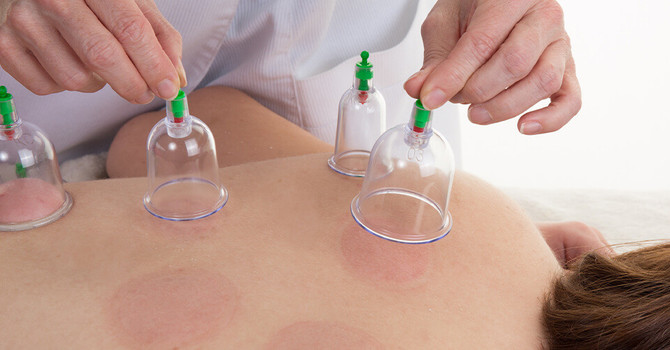Demystifying Acupuncture: A Patient's Guide to Everything You Should Know Before, During, and After Your Treatment
Acupuncture treatments vary significantly depending on the practitioner's unique style and methods. Additionally, each patient presents with individual ailments and reasons for seeking treatment, meaning no two patients will have the same experience. However, certain constants are present in every acupuncture session
The Initial Consultation: Your Gateway to Personalized Acupuncture
Before any needles are delicately inserted into your skin, the journey into acupuncture begins with a crucial first step: a comprehensive consultation with your acupuncture practitioner. This initial meeting is far more than a mere formality; it's the bedrock upon which your personalized treatment plan will be built.
During this vital session, your practitioner will dedicate significant time to understanding you as a whole individual, not just your symptoms. They will delve deep into your health history, asking a wide array of questions that may seem unrelated to your chief complaint but are, in fact, essential to an accurate diagnosis within the framework of Traditional Chinese Medicine (TCM). Expect inquiries about your:
● Current health concerns: A detailed discussion of the specific reasons you're seeking acupuncture, including the onset, duration, intensity, and aggravating/alleviating factors of your symptoms.
● Medical history: Past illnesses, surgeries, medications, allergies, and any family medical history that might be relevant.
● Lifestyle: Diet, exercise habits, sleep patterns, stress levels, and daily routines.
● Emotional well-being: Your mood, emotional responses, and any experiences of anxiety, depression, or other emotional imbalances.
● Bodily functions: Digestion, urination, bowel movements, menstrual cycles (for women), and any other bodily processes that can offer clues to internal imbalances.
Beyond this verbal exchange, the practitioner will also employ diagnostic techniques unique to TCM, such as:
● Tongue diagnosis: Observing the color, shape, coating, and moisture of your tongue can reveal information about the health of your internal organs and the state of your qi (energy) and blood.
● Pulse diagnosis: Palpating your radial pulse at various positions on both wrists, the practitioner can discern subtle qualities in the pulse that reflect the health of different organ systems and energetic pathways.
By meticulously gathering all this information, your acupuncture practitioner aims to achieve a holistic understanding of your unique energetic imbalances. They will then synthesize this data to determine the most appropriate and effective treatment strategy tailored specifically to your needs, ensuring that every subsequent acupuncture session is designed to address the root cause of your concerns and guide you towards optimal health and well-being. This thorough initial assessment is what truly sets the stage for a successful and transformative acupuncture experience.
During Your Treatment
Acupuncture points, often referred to as acupoints, are strategically located throughout the entire body, forming an intricate network. Interestingly, the points chosen for manipulation during a session might not be directly at the site of your pain or ailment. This is a fundamental concept in acupuncture, as the points are believed to influence energy pathways, or meridians, that extend throughout the body. Therefore, a point on your hand might be used to address discomfort in your head, for example.
During your acupuncture session, the practitioner will conduct a thorough assessment to determine the most appropriate acupoints for your specific condition. This assessment typically involves a detailed discussion about your symptoms, medical history, and lifestyle, as well as an examination of your pulse and tongue. Based on this holistic evaluation, the practitioner will carefully select the precise points that will be targeted to restore balance and promote healing within your body.
In many instances, the chosen acupuncture points are located on areas of the body that are easily accessible, such as your arms, hands, legs, or feet. This often means that you will not need to remove any clothing for the treatment. However, if the practitioner determines that points on your back, abdomen, or other areas requiring more exposure are necessary, you will always be provided with a gown or towel to ensure your comfort and privacy. Your dignity and comfort are paramount throughout the entire process.
Acupuncture Needle Insertion
Acupuncture needles are extremely fine, leading to minimal pain or discomfort upon insertion. While a mild ache may be felt once a needle reaches its proper depth, the initial insertion is virtually painless.
Most treatments utilize between five and 20 needles, though the exact number varies based on the specific treatment. After insertion, needles may be gently moved or twirled as part of the therapeutic process. In some instances, heat or mild electrical pulses are applied to the needles. Throughout these manipulations, you should experience little to no pain or discomfort.
Needles are typically left in place for ten to 20 minutes while you comfortably relax on a padded table. Their removal is usually painless and without discomfort.
Chinese Herbal Medicine
Beyond acupuncture, many practitioners adopt a holistic approach. Your session may begin with a discussion and diagnostics to identify the root cause of your concerns.
Following treatment, you might receive a personalized Chinese herbal formula. These formulas, along with other recommendations such as nutrition and lifestyle adjustments, work in conjunction with your acupuncture to optimize your treatment outcomes in a way that acupuncture alone cannot.
Chinese herbal formulas are unique combinations of specific herbal substances, tailored to your individual condition, situation, and treatment requirements. The synergy of these components makes the formula more potent than its individual parts.
After the Treatment
Individual reactions to acupuncture treatments vary; some feel energized, others relaxed, and some may not feel immediate effects. It's advisable to rest briefly after a session, especially before driving, if feeling disoriented. Acupuncture is a traditional Chinese medicine treatment, and like any medical procedure, it's not suitable for everyone. Consulting a doctor before seeking a practitioner is recommended.



